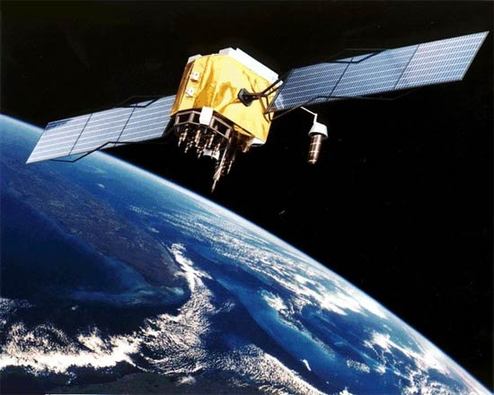China eyes launches of more Beidou satellites
 0 Comment(s)
0 Comment(s) Print
Print E-mail China Daily, May 2, 2012
E-mail China Daily, May 2, 2012
China launched two satellites for its Beidou global navigation and positioning system into space atop a carrier rocket on Monday, and will see similar launches in the future to reduce costs and save time, a rocket scientist said.
 |
|
Artistic rendering of Beidou satellite. |
The two satellites - the 12th and 13th satellites for the Beidou system, China's version of the US Global Positioning System - were launched aboard a Long March-3B carrier rocket from the Xichang Satellite Launch Center in Sichuan province early on Monday morning.
It is the first time China has launched two navigation satellites with one rocket, according to a statement on the Beidou network's official website, beidou.gov.cn.
At a time when China is planning many space launches, such an efficient way of launching navigation satellites will reduce both time and costs, said Jiang Jie, chief designer of the mission's launch carrier system.
"Two such launches (with two satellites on one rocket) are planned for this year ... Otherwise, four navigation satellites would need four rockets, which would be more time-consuming," she said.
The future trend is a carrier rocket capable of launching four satellites at one time, she added.
Rocket designers made 26 changes over the course of three years to the Long March-3B carrier rocket used for Monday's mission, including a new orbit for launching and a redesigned supporting structure for the satellites, she said.
"The key problem (in launching two satellites on one rocket) is to make sure all separation moves between satellites and rockets are safe and reliable," she said.
Monday's mission involved a more complicated separation process that included seven separation moves, compared to five moves for normal launches, she said.
The two satellites will help improve the accuracy of the Beidou system, which will eventually become a global satellite positioning and navigation system in 2020, with more than 30 orbiters.
China Navigation Satellite Office director Ran Chengqi announced in December that the Beidou system had begun to provide navigation, positioning and timing data on a pilot basis to China and the neighboring area for free.
The system, which had 10 orbiting satellites at the time of the announcement, covers an area from Australia in the south to Russia in the north. Six more satellites are scheduled to be launched this year, giving the system the ability to cover a wider area.
With the system operational, China is the third member of an elite group, along with the US and Russia, to operate a satellite navigation system.
The US GPS was completed in 1994, with 24 navigation satellites now providing service to worldwide users.
Russia is rebuilding its Glonass system and plans to launch 22 new navigation satellites, the Glonass-K, to replace the outdated ones.
The first of the new generation of navigation satellites was launched in February 2011 and a second is set for launch in 2013, Russian space officials said.
The European Union and the European Space Agency are building the Galileo satellite navigation system. Japan and India also intend to build independent regional navigation systems.
Experts have said that countries build their own systems because owning an independent satellite navigation system is important to national security and economic development.






Go to Forum >>0 Comment(s)